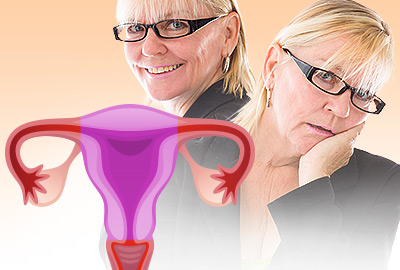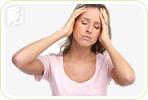
Mood swings and tiredness are common symptoms of menopause. They are caused by the natural fluctuations of hormone levels. Menopause symptoms can come in clusters and one can exacerbate the other - for example, tiredness often triggers mood swings, and the hyperactivity associated with mood swings often causes greater tiredness.
Why Do Women Suffer Mood Swings during Menopause?
Tiredness
During menopause, night sweats and other symptoms can lead to fatigue. Night sweats, also known as “nocturnal hyperhidrosis”, are episodes of excessive sweating that wake a person while sleeping. Since night sweats can also be accompanied by snoring and sore throats, they can further disrupt sleep patterns and affect women's daily routines.
During menopause, the body decreases its production of the reproductive hormone estrogen, which affects the chemical makeup of the brain and can cause mood swings.
Mood swings tend to be more severe in those who have experienced surgical menopause, such as a hysterectomy. The loss of the uterus and ovaries drastically changes the hormone levels and the functionality of the body. However, not all women experience mood swings during menopause.
Talking about Mood Swings and Tiredness

If your mood swings and tiredness symptoms are overwhelming, talk with a medical professional.
Also, talk with your family. Often family members will have noticed the changes in your mood and behavior, so discussing them can remove underlying resentment and increase understanding and support. If you are already feeling tired due to the symptoms of night sweats and other factors, it is crucial that have the support of your family and friends.
How Do I Overcome the Symptoms of Mood Swings and Tiredness?
Mood swings and tiredness are linked to lowered levels of estrogen during menopause. Therefore, the key to overcoming these symptoms lies in restoring estrogen levels. This can be achieved by following a healthy diet and exercise program that provides the body with essential nutrients and strength, so the body can produce healthy levels of hormones. You may also try reducing your intake of stimulants like caffeine, which causes fluctuations in blood sugar levels and provoke night sweats.
In addition to these suggestions, a hormonal imbalance can be alleviated with alternate medicines. There are some alternative medicines that stimulate the body's hormone production and as a result, reduce estrogen deficiency. Click on the following link for information about treatments for mood swings and tiredness.
Sources
- The Health Center.(n.d)."Adult Mood Swings".Retrieved from www.thehealthcenter.info.
- Dr. Love, Susan, and Karen Lindsey. Dr. Susan Love's Menopause and Hormone Book. New York: Three Rivers Press, 2003.
- Amin, Zenab, Turhan Canli, and C. Neill Epperson. "Effects of Estrogen-Serotonin Interactions on Mood and Cognition". Behav Cogn Neurosci Rev 2005; 4; 43.
- Molecular Psychiatry.(n.d)."Estrogen Promotes Gender Difference in Brain's Response to Stress".Retrieved from www.psycheducation.org.



